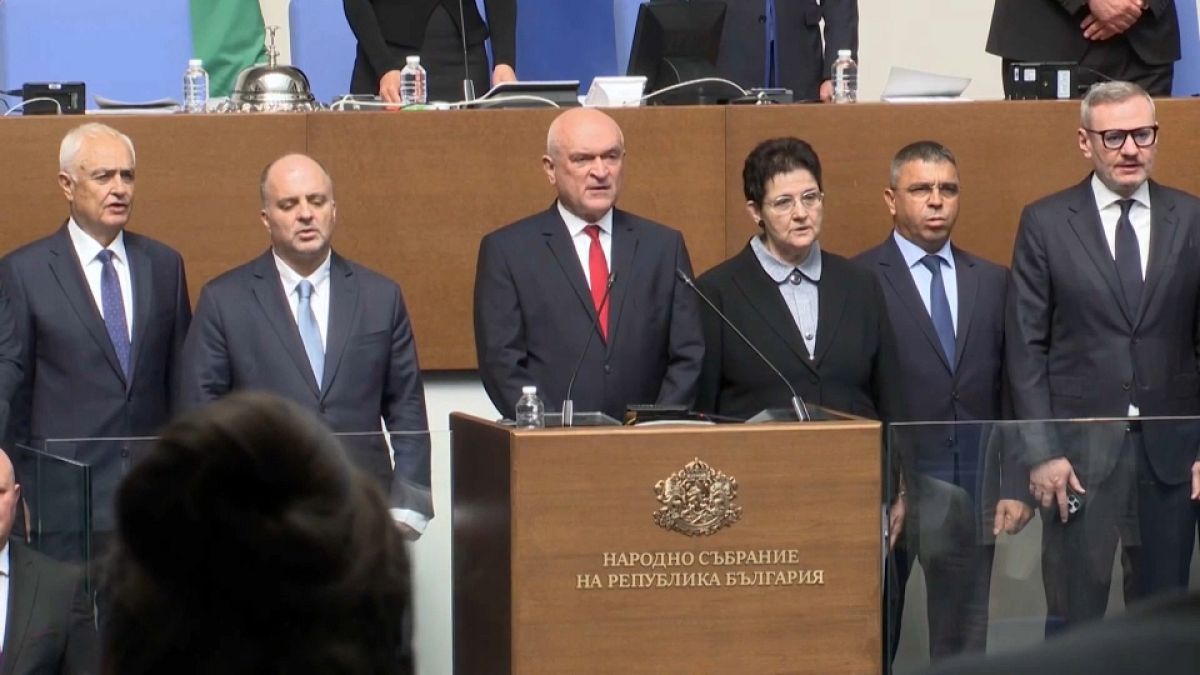Bulgaria has been facing a political crisis marked by instability and ineffective governance for the past few years. With six snap elections failing to produce a stable government, voters are becoming apathetic towards the political process. President Rumen Radev has announced a seventh snap election on 27 October in an effort to break the impasse and establish a sustainable majority in parliament. The country’s challenges have been exacerbated by corruption, oligarchs’ influence over state institutions, and difficulties in forming coalitions.
In response to the ongoing political crisis, a new caretaker government has been sworn in to lead the country until the upcoming election. President Radev has reappointed Dimitar Glavchev as caretaker prime minister after a previous candidate was rejected due to disagreements over cabinet appointments. The challenges facing Bulgaria go beyond forming a government, as the country also aims to join the Eurozone and implement necessary reforms to access EU recovery funds. The political instability has not only hindered governance but has also led to a decline in voter turnout and interest in politics among Bulgarians.
Since 2020, Bulgaria has been facing political turmoil, with mass protests erupting against corrupt politicians and oligarchs controlling state institutions. However, the efforts to address these issues through reform-oriented politicians have been hindered by the inability to form stable governments. In the most recent election in June, no party secured a majority, leading to a fragmented legislature unable to form a coalition. The lack of decisive leadership has further complicated Bulgaria’s efforts to address political graft and reduce its reliance on Russia for energy and security.
One of the key challenges facing the caretaker government is the appointment of a new Bulgarian EU Commissioner by the impending deadline. The GERB party has put forward former foreign minister Ekaterina Zaharieva as a candidate, while other names being considered include Sergei Stanishev and Iliana Ivanova. The decision regarding the EU Commissioner will have implications for Bulgaria’s relationship with the EU and its ability to access vital recovery funds. The ongoing political crisis has resulted in a period of uncertainty and challenges for Bulgaria’s governance and international relations.
The political instability in Bulgaria has raised concerns about the country’s ability to address critical issues such as corruption, oligarch influence, and economic reforms. With successive snap elections failing to produce effective governance, the upcoming election on 27 October represents another opportunity for Bulgarians to choose their leaders. However, the growing apathy towards politics and declining voter turnout indicate a broader disillusionment with the political process. It is crucial for Bulgaria to establish a stable and effective government that can address the country’s challenges and work towards achieving its goals of joining the Eurozone and implementing necessary reforms.
In conclusion, Bulgaria is facing a protracted period of political uncertainty and challenges as it grapples with forming a stable government and addressing key issues such as corruption and oligarch influence. The upcoming seventh snap election represents another attempt to break the political impasse and establish a sustainable majority in parliament. The caretaker government’s responsibilities include appointing a new Bulgarian EU Commissioner, a decision that will impact the country’s relationship with the EU and access to recovery funds. As Bulgarians navigate the complexities of their political landscape, it is essential for the country to overcome apathy and disillusionment and strive towards building a stronger and more effective governance system.










